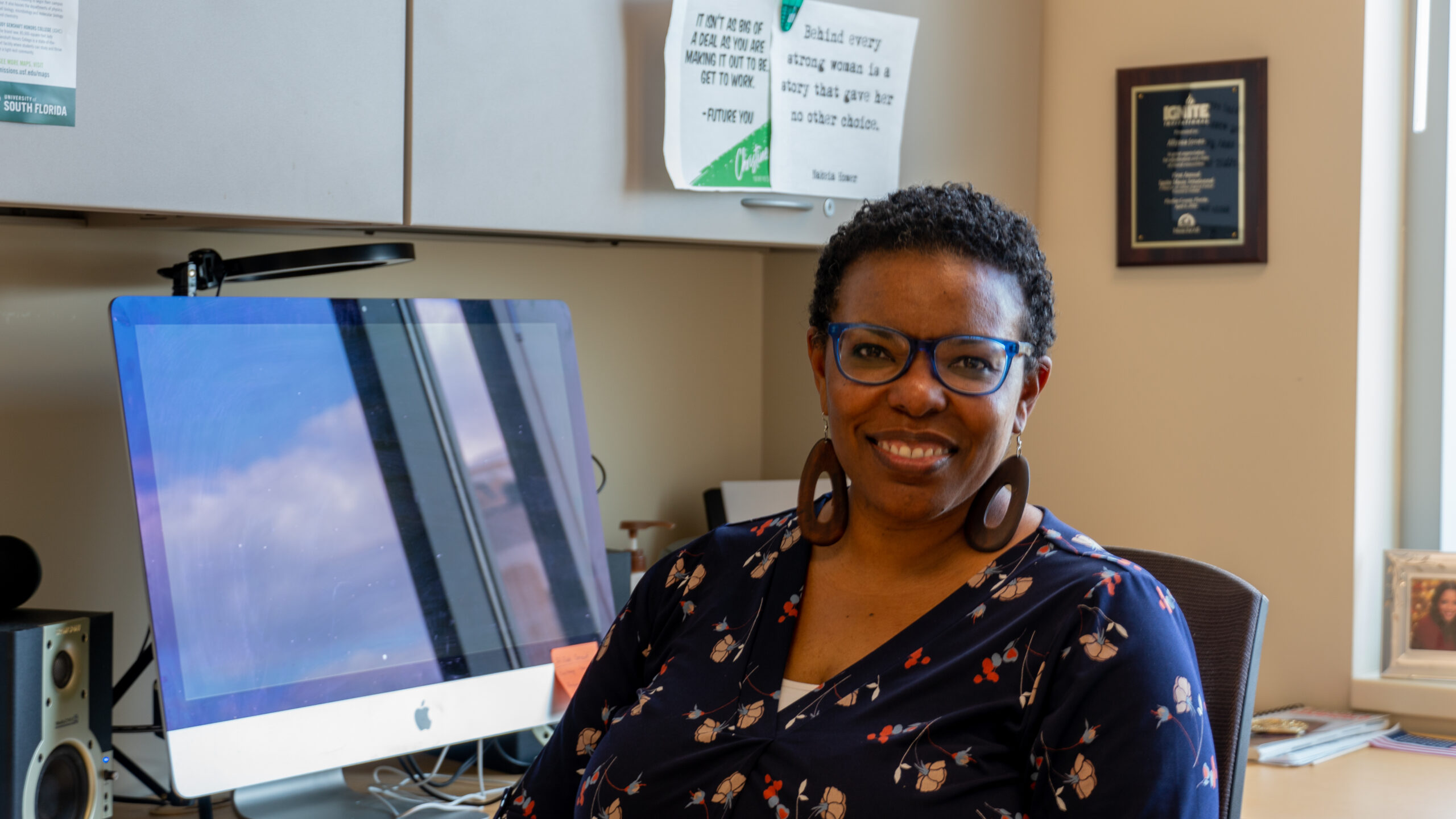Advocating for equality: Allyssa Jones teaches empowerment through music

Director of vocal ensembles Allyssa Jones has been entwined with music since she started taking piano lessons at 5 years old.
She continued playing the piano until attending college as a piano major, but was overwhelmed with stage fright and pressure. This helped her realize her talent for singing.
She had a passion for performance and composition, but becoming a music professor was an unexpected blessing.
Her elementary school band director and high school choir director were notable influences that have shaped her career in music. Jones’ choir director was the first to ask her to conduct a musical piece and to identify the “teacher in her” before she eventually knew that would be her career.
Jones said her lead influence was her jazz band director from graduate school, who she described as being an uncle to her. He gave her the singer position in his band and she currently runs special events for his company.
“He taught me how to be a jazz singer. And it was jazz that saved my life in my career and as a performer,” Jones said.
She rewrote the original musical score of the New Orleans take on the “The Wiz” musical and established a large portion of musical text of another upcoming musical that revolves around the life of Nat Turner, an enslaved man that led a rebellion of enslaved people.
Her records, “This is Ms. Jones” and “After Hours,” are accomplishments that Jones said she is proud of, as they document her growth and evolution as an artist. She added that through each record, she can hear herself figuring out who she is as a creative person.
“One of the most exciting things about being a creator is that you are certainly making things and you’re sharing them with the world, but you’re also watching yourself change and getting excited about that and then pushing toward the next change,” she said.
Jones said she tries to support the community by creating a more accessible path to music. She hosts a concert musical class to gather people who love to sing to write music and put on a concert of their favorite songs. This mission has opened more opportunities for a diverse group of musicians, according to Jones.
It is imperative to instill a sense of wonder in the minds of young musicians, Jones said.
“You wonder, and you chase that wonder. You don’t need to be told to practice. You need to be told to work through your mistakes,” she said. “If you wonder about something and approach it with an attitude of wonder, then everything else is arithmetic.”
Music has helped other students to connect, as it is more beneficial when there is collaboration in the music process, according to Jones. She said practicing music alone may feel daunting, monotonous or inadequate as opposed to practicing in group rehearsals or performing in front of an audience.
Making mistakes might also feel terrifying because of the expected judgment from the crowd, she said, but it is all a part of being human and knowing there is still a connection between the performer and the audience.
A higher number of male composers present than female has made music a sexist industry, according to Jones. With race integrated into the discussion, she said it is an anomaly to see a Black woman as a college professor, especially as the director of the Choral Vocal ensemble program or as a composer.
It is challenging to eliminate discrimination and sexism against women, according to Jones. She said part of the human experience is that people will always perpetuate oppression against certain groups.
“It is impossible to eradicate people’s tendency to find fault with other groups of people. It’s how we’re built. It’s in our DNA. What we can do is ensure that there’s a policy in place to not let that happen,” Jones said.
The people committing the infractions must be held accountable and policies must be implemented as a result of the people perpetuating discrimination, according to Jones.
“If we acknowledge that in ourselves, and that not everybody is going to answer to their better nature, then we create systems that hold people accountable to function in their better nature. That’s what we need to do,” she said.
People should start small when trying to create a more inclusive and diverse society for all women so that they can grow from the effort, according to Jones. She added that effort then becomes a habit and the habit becomes your identity.
“We have to get okay with feeling uncomfortable. We have to be okay with having to make some adjustments and how we move through the world,” she said.
“It’s all individual paradigm shifts. And then actualizing and practicing those until they’re not an effort right in your immediate sphere. Until your friend’s list is at least 50% of people who don’t look like you, then don’t speak about making the world a better place until you improve your interactions with and befriend a more diverse set of people.”







